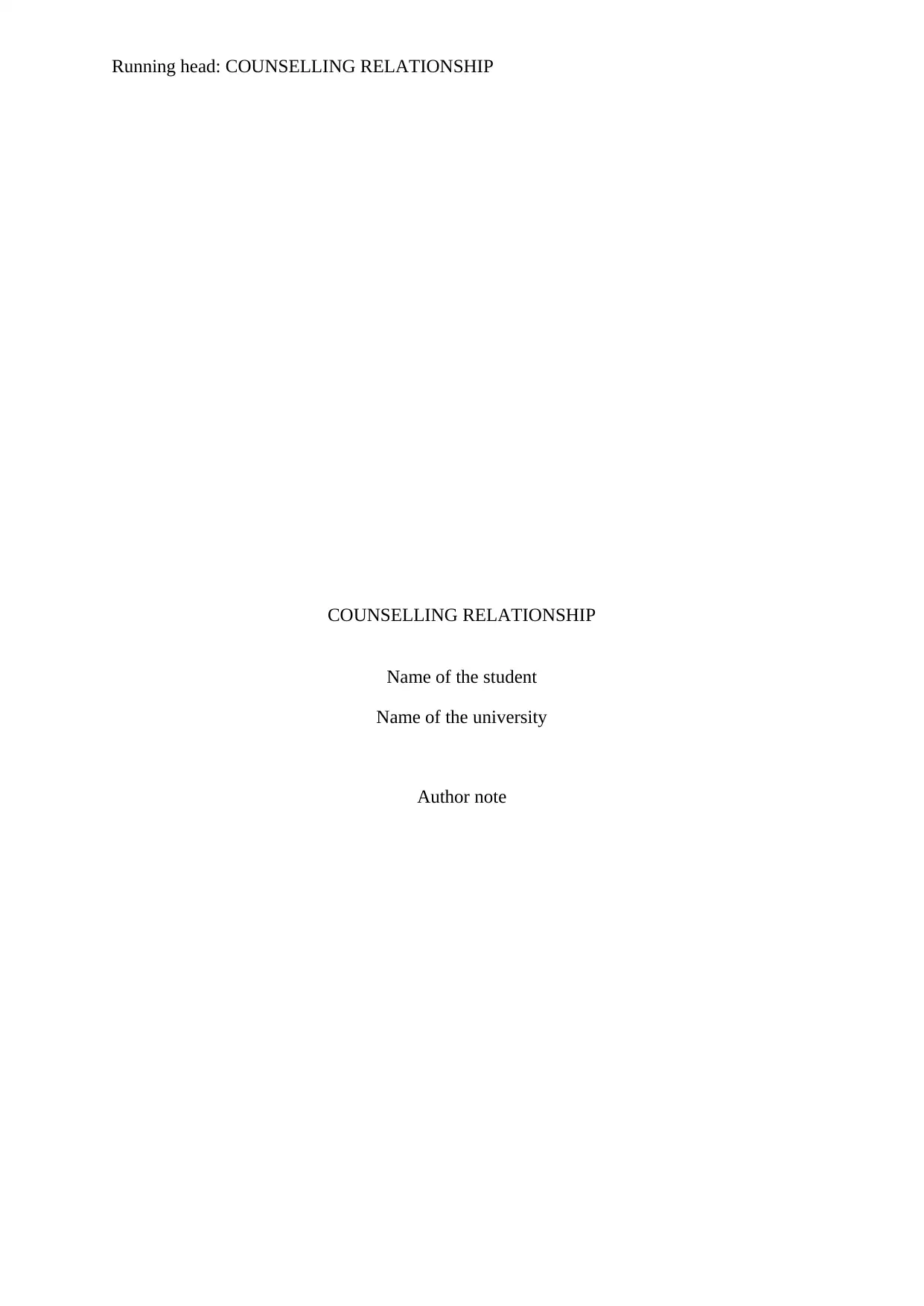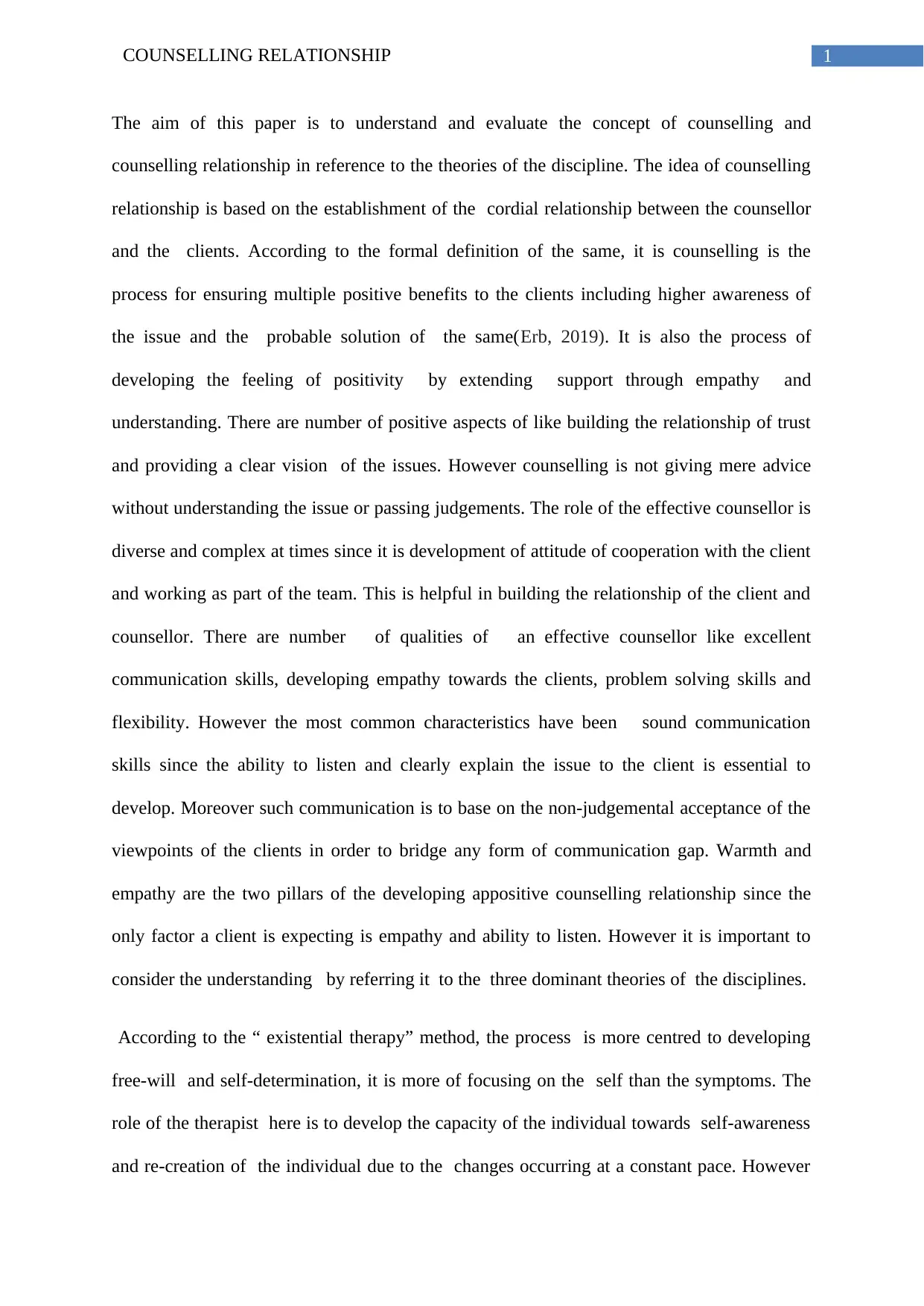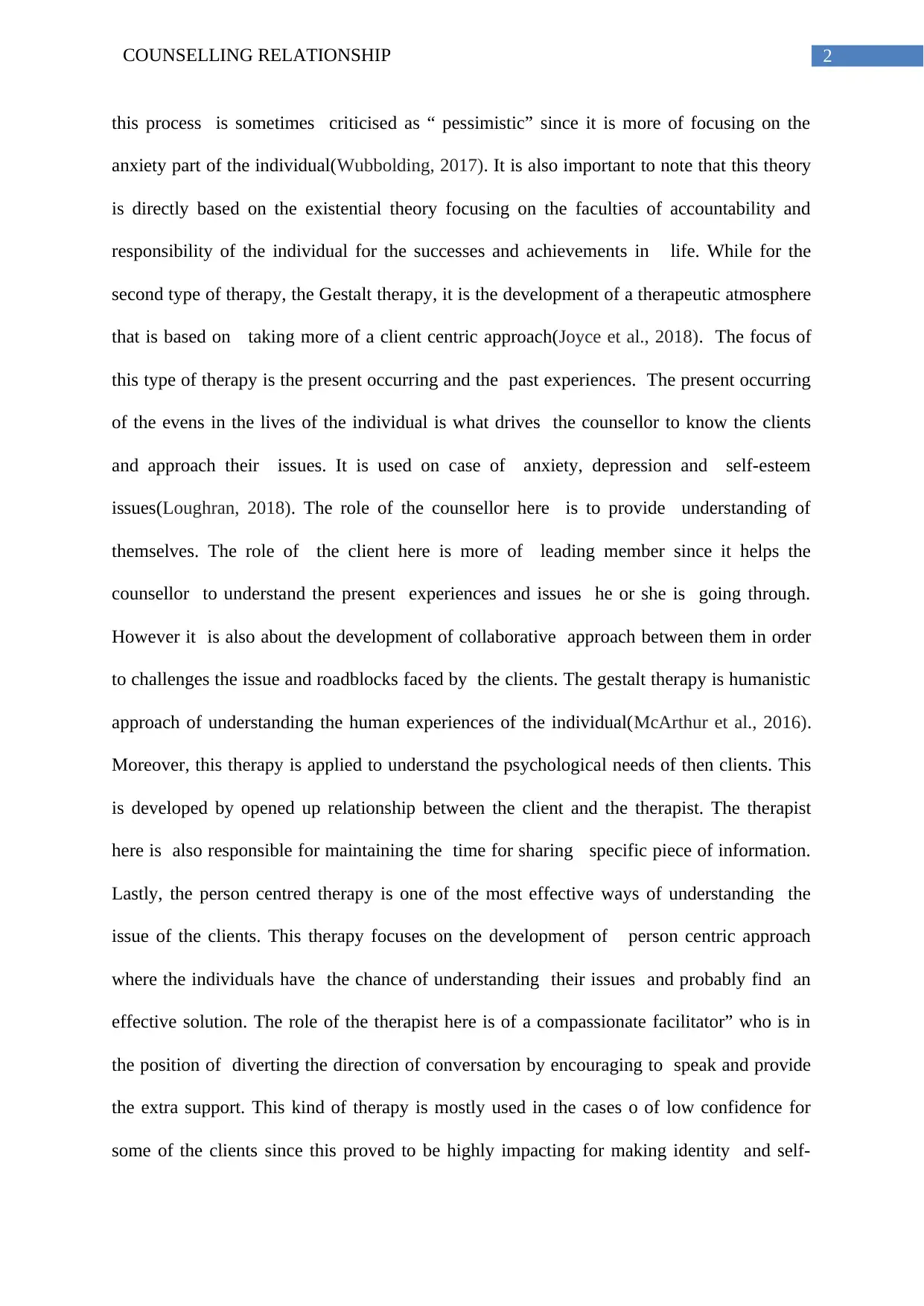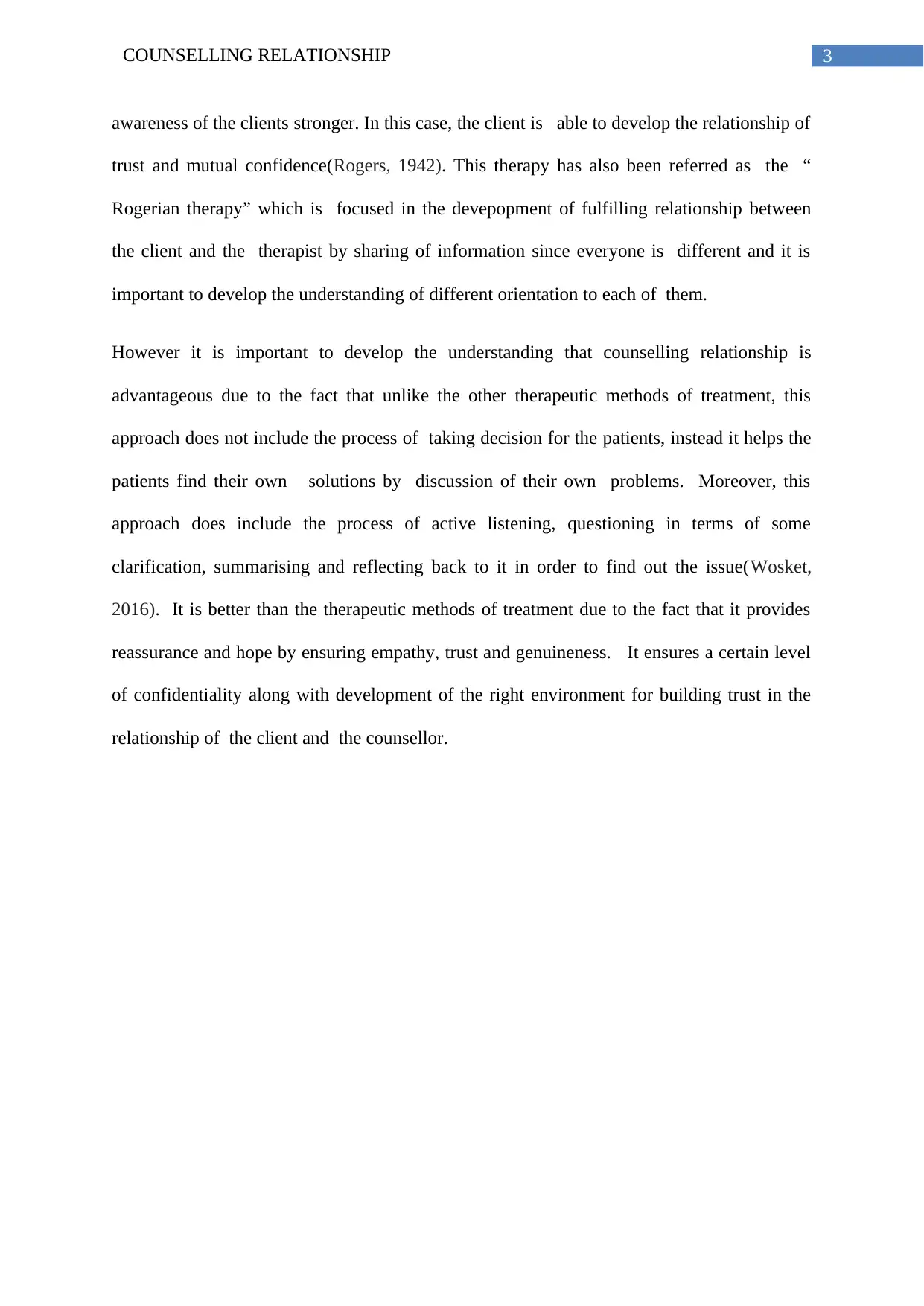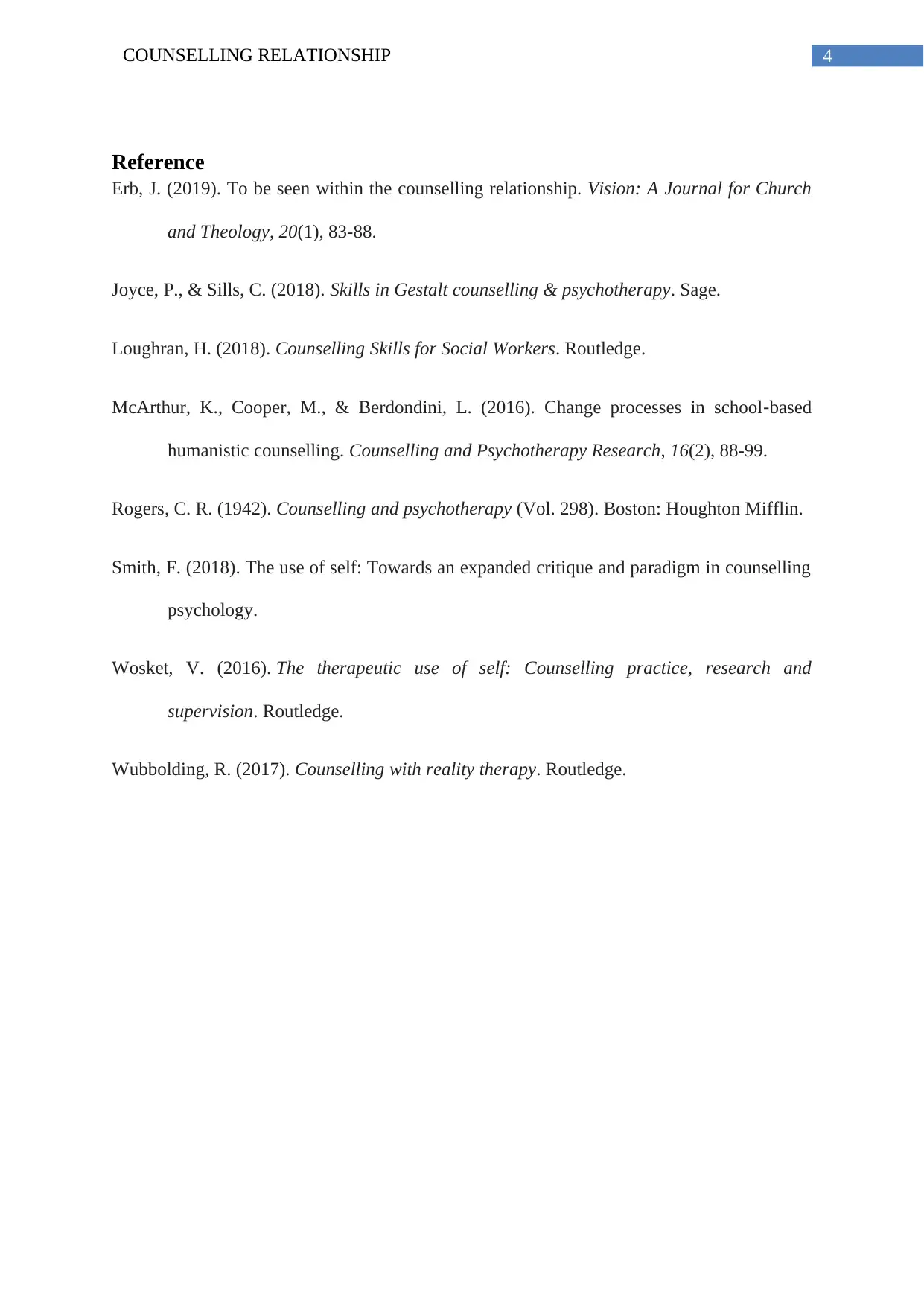The aim of this paper is to understand and evaluate the concept of counselling and counselling relationship in reference to the theories of the discipline. The idea of counselling relationship is based on the establishment of a cordial relationship between the counsellor and the clients. According to the formal definition of the same, counselling is the process for ensuring multiple positive benefits to the clients including higher awareness of the issue and the probable solution of the same. It is also the process of developing the feeling of positivity by extending support through empathy and understanding. There are a number of positive aspects like building the relationship of trust and providing a clear vision of the issues. However, counselling is not giving mere advice without understanding the issue or passing judgments. The role of the effective counsellor is diverse and complex at times since it is the development of an attitude of cooperation with the client and working as part of the team. This is helpful in building the relationship of the client and counsellor. There are a number of qualities of an effective counsellor like excellent communication skills, developing empathy towards the clients, problem-solving skills, and flexibility. However, the most common characteristic has been sound communication skills since the ability to listen and clearly explain the issue to the client is essential to develop. Moreover, such communication is to base on the non-judgmental acceptance of the viewpoints of the clients in order to bridge any form of communication gap. Warmth and empathy are the two pillars of the developing a positive counselling relationship since the only factor a client is expecting is empathy and ability to listen. However, it is important to consider the understanding by referring it to the three dominant theories of the disciplines.
![[object Object]](/_next/static/media/star-bottom.7253800d.svg)
![[object Object]](/_next/static/media/star-bottom.7253800d.svg)
